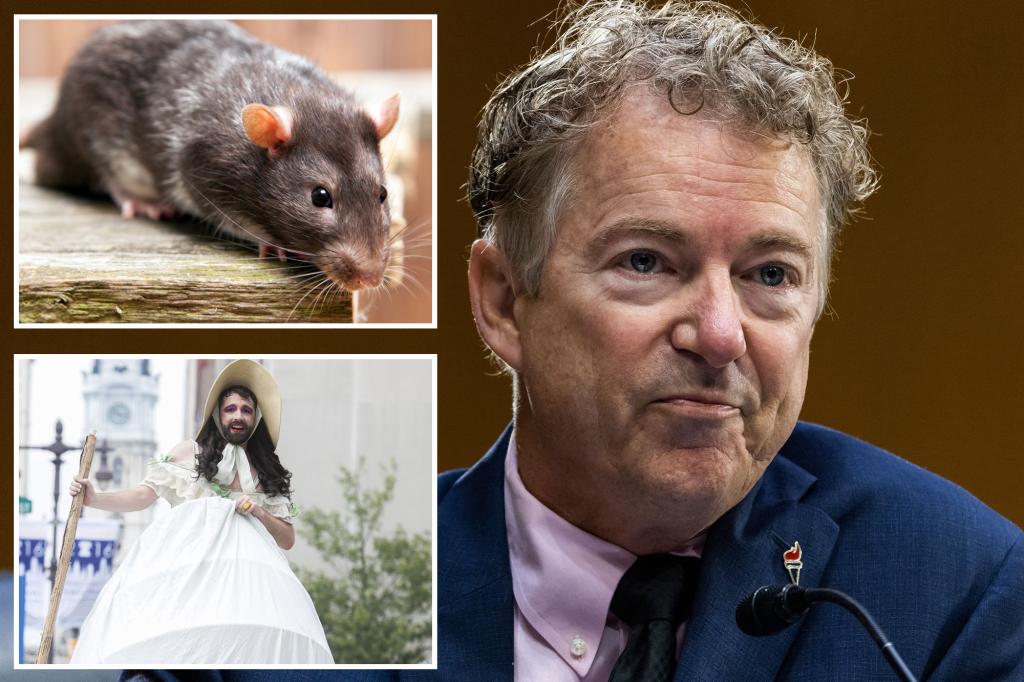Senator Rand Paul’s 2024 “Festivus Report” unveils a litany of what he deems wasteful government spending, totaling over $1 trillion. The report, inspired by the fictional holiday from the sitcom “Seinfeld,” highlights a range of expenditures across various government agencies, questioning their necessity and value to taxpayers. From scientific studies with questionable practical applications to artistic grants perceived as frivolous, the report paints a picture of government excess and misallocation of resources. Senator Paul’s critique spans both Democratic and Republican administrations, suggesting a systemic issue of wasteful spending ingrained in the political process.
One prominent example cited in the report involves the Department of Health and Human Services, which allocated over $400,000 to research cocaine-seeking behavior in rats, differentiating between “lonely” and “happy” rodents. While the scientific merits of such a study might be debated, the report frames it as an example of government funding directed towards projects with dubious real-world impact. Further raising ethical concerns, the report highlights a $2.24 million grant to Cornell University for COVID-19 research involving cats, ultimately leading to the euthanization of the animals after the experiments. This particular expenditure is linked to Dr. Anthony Fauci’s NIAID and the USDA, raising questions about the oversight and ethical considerations within these institutions.
Beyond scientific research, the report also targets funding allocated to the arts. The National Endowment for the Arts (NEA) is criticized for awarding a $10,000 grant to a “queer cabaret arts organization” for climate change-themed ice-skating performances featuring drag queens and anthropomorphic characters. This example, along with others like a $40,000 grant for a pigeon sculpture in New York City’s High Line park and recurring funding for “sideshows” in city parks, is presented as evidence of the NEA prioritizing niche artistic endeavors over more practical societal needs. The report suggests a disconnect between the NEA’s funding decisions and the priorities of average taxpayers.
The report further expands its critique to include infrastructure spending, citing $10 billion spent on maintaining largely vacant government buildings, deemed “ghost towns.” This represents a significant portion of the alleged wasted funds and underscores a potential inefficiency in government resource management. Another example targets the DHHS for a $5 million grant to study children’s responses to food advertisements on Facebook, a project criticized for its seemingly trivial focus in the context of broader societal issues. The report frames these examples within a larger narrative of government overspending and a lack of fiscal responsibility.
One of the most substantial expenditures highlighted in the report is a $12 million investment in a pickleball complex in Las Vegas. While seemingly a recreational project, the report emphasizes its funding by the Department of the Interior and the opposition from local residents concerned about noise pollution, traffic congestion, and potential property devaluation. This particular example illustrates the potential clash between government-funded projects and the interests of the communities directly affected. This case also raises questions about the prioritization of recreational spending over other potential community needs.
Senator Paul concludes his report by pledging to collaborate with Congress and the incoming Trump administration (as of the report’s timeframe) to address what he perceives as rampant government waste. He positions himself as a fiscal watchdog, committed to challenging questionable spending practices and advocating for greater transparency and accountability in government budgeting. His invocation of the then-popular internet meme “DOGE” further emphasizes his self-portrayal as an early and consistent advocate for fiscal responsibility. This concluding statement sets the stage for future efforts to scrutinize government spending and promote more prudent use of taxpayer dollars.

